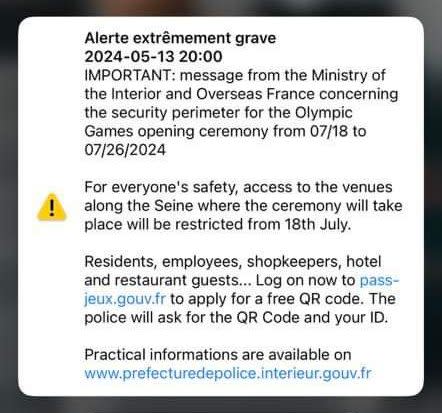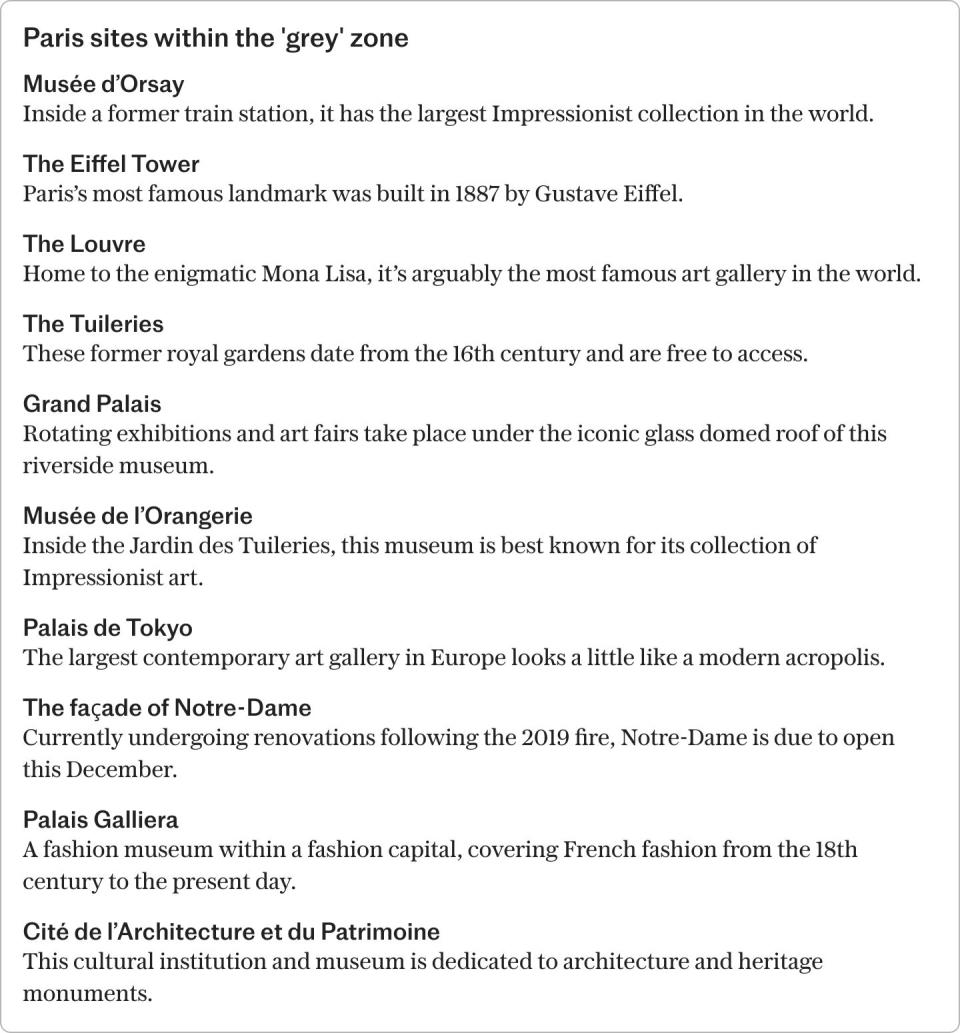From July 18 to 26, people visiting or living in large areas of central Paris will have to show a QR code to walk down the street. Most attractions, including the Eiffel Tower, the Louvre and Notre Dame, as well as the Gare de Lyon station, will not be accessible to anyone without a code. Is it like a Covid-19 rollback or something out of a dystopian novel? Sure, and maybe this is why many Parisians are fired.
Amid concerns about overcrowding and security, the QR code registration system went live on May 13. Paris has been no stranger to terrorist attacks in recent years, so it’s no surprise that extra security measures are being put in place as the French capital prepares. to host the Olympics.
Many Parisians did not accept the news, especially those who live in areas where the system will be mandatory. The affected area runs along the banks of the Seine from Pont du Garigliano in the 15th to Charenton-le-Pont in the 11th, divided into “grey” and “red” zones. Much of the cynicism comes from France with its complex administrative procedures. As someone who has been through visa hell more than once, I can sympathize with those who are worried that the QR codes will glitch and those who have already had problems.
Matthew Fraser, a British author living in Paris, wrote on X:
French bureaucracy in action: My request for a ‘QR code’ to get around Paris during the Olympics has been rejected because the ID card I uploaded was not ‘recto-verso’. I have to start over. FFS. #pasjeux pic.twitter.com/4UPszsbUrc
— Matthew Fraser 🇪🇺 (@frasermatthew) May 16, 2024
“The obstacle is not an important issue of my address,” he clarified in a subsequent post, “but a matter of “form” (my ID card was not uploaded in the required format) … form over substance.”
The rules vary depending on whether you are a pedestrian or cyclist, or a driver. In both the gray and red zones, all but a few motor vehicles will be banned, and most taxis won’t even be able to pass. In the gray area, pedestrians, cyclists and those on non-motorized scooters will need to present a QR code to access the area between 18-26 July. If you are not a resident or a ticket holder to the opening ceremony, you will not even be allowed to enter the gray area after 1pm on July 26, the day of the opening ceremony. The red zone mainly restricts drivers. If you have a ticket to the opening ceremony, you do not need to download a QR code to attend, but you will need a photo ID.
Restrictions and closures between 18-26 July
‘The French complain no matter what’
After Venice imposed QR codes for peak season day-trippers back in April, could we be looking at the future of travel? The Paris measures are temporary, and linked to security as well as overcrowding, but in Venice, the QR code works a bit like an entry ticket, and tourists are forced to pay €5 (£4.30) to get their code to visit the . day.
To inform Paris about the proposed system, the government sent an SMS entitled “alerte extremement grave” (extremely serious warning message). It scared some residents.
“It pissed me off, because it was so dramatic, and it seemed like a warning of a natural disaster,” said the 15th arrondissement resident, who preferred to remain anonymous. “I didn’t know they were even allowed to send messages like that unless there was a natural disaster or a security threat!”

Others doubted that it would help security at all, and saw it as yet another way to punish residents.
“As a freelancer, I move a lot for work and I will definitely have to cross the zones involved,” said Melodie Cherlot. “Not only does the QR code feel like we are returning to the pandemic, but I doubt it will be effective on a security level. We didn’t choose to hold the Games here and we’re just here to have fun, this is our home. But we are the ones who pay the price, first with the Metro terror fares and now the QR code.”
Not everyone was skeptical of the QR system, and some embraced the emphasis on security.
“If nothing was put in place, the French would still be complaining,” said Gwenaelle Chevalier. “It seems completely logical to me to ask for a QR code, and sure, it will be a bit more complicated to get around these areas during the Games, but I’m sure Parisians will be very proud of the Olympics in the end – no matter how. they were heavily criticized beforehand.”
How to have Paris 2024 with ease
Visiting Paris during the Olympics will definitely take some extra planning, especially if you want to combine watching the Games with visits to iconic landmarks, as many are included in the restricted zones.
To escape all the chaos, try to stay in eastern Paris (19th and 20th). None of the Olympic events take place here (so no need for a QR code!), there’s amazing street art, and you can see the entire Paris skyline from the quarry-turned urban park of Buttes-Chaumont.
If the thought of the Paris Metro during the Games terrifies you and you have time to spare, American bishop Gil, owner of Moontown Walking Tours, will run his tailor-made private city walks around the Olympics, with a twist. You choose the starting point and the arrival, and he will guide you there on foot in the most creative way he can find, with plenty of stories, architectural gems, history and food recommendations along the way.


Telegraph disclaimer: this information is intended as a guide only and is based on the latest information provided by the Prefecture de Police, which may change at any time. We recommend only using the zone map found on the police website (www.prefecturedepolice.interieur.gouv.fr), as other sites, even official Olympic sites such as Anticiper les Jeux, are not updated as regularly.